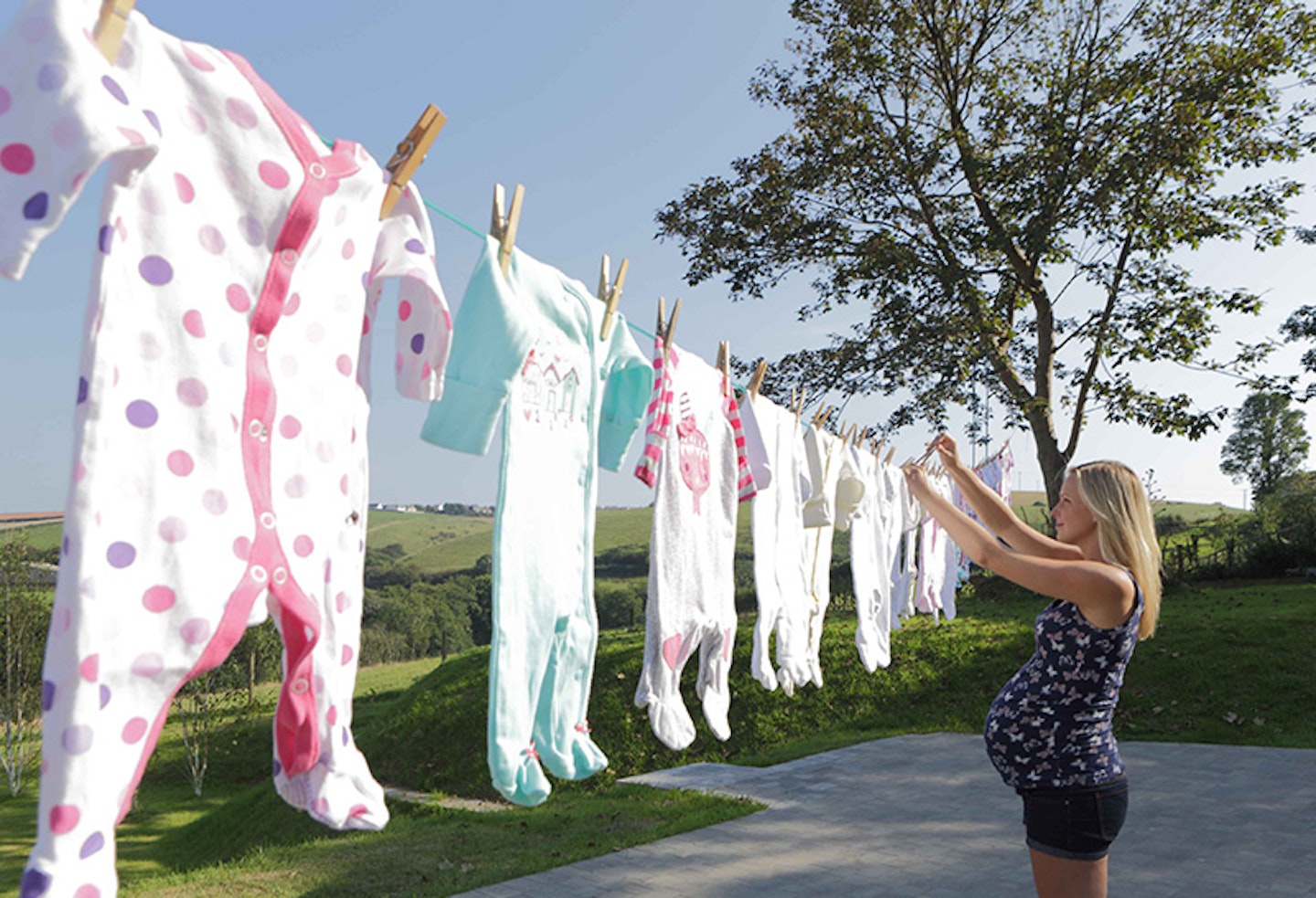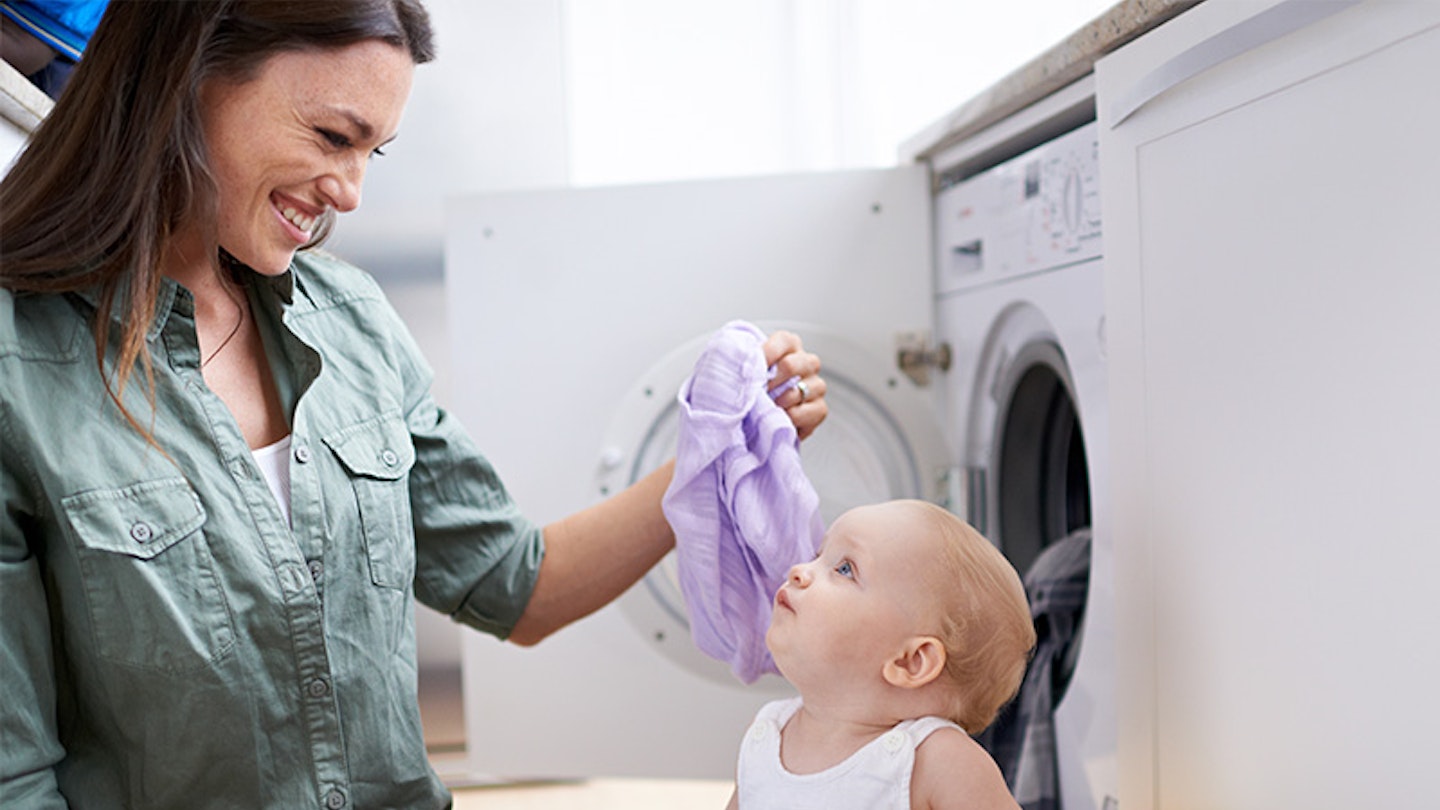Picking out adorable baby clothes is one of the loveliest parts of pregnancy, but once you've got them home, you'll need to wash them. And because of their delicate skin, the guidelines of washing baby clothes are slightly different to how you'd clean your own.
Founder of plant-based cleaning brand Nimble, Von Sy gives us the lowdown on everything you need to know.
How to wash baby clothes
First things first, just as you would do for the rest of your family laundry basket pile, check the garment care labels to see if there are any special washing instructions: for example, some items may require to be hand-washed or to be washed in cold water only. Then separate darker colours from whites and choose a detergent for sensitive skin.
What to wash baby clothes with
It’s highly recommended to use non-bio detergents for baby’s clothes. Non-bio means they don’t contain enzymes that can deposit into the fabrics and potentially irritate your baby’s sensitive skin. And given a choice, it is best to use liquid detergents rather than powder. Liquid detergents are gentler to fabrics and could help keep your baby clothes looking new for longer.
Is it necessary to wash baby clothes before use?
Whether you purchase from a shop or receive it as gifts, clothing for your little one can easily pick up dust and dirt on its way to your home. By washing everything first, you can be sure any irritants on the fabric have been removed before they are on your little one’s sensitive skin.
What temperature is best to wash baby clothes?
While it might be tempting to wash newborn baby clothes at the highest temperature on the garment care label, we have found 30 or 40 degrees is absolutely fine to remove any lingering dust or dirt. It’s also a lot kinder to the environment and your power bill! And it will keep the clothes lasting for longer.
The only exception here would be if the item is heavily soiled like reusable nappies as the higher temperature will help ensure all bacteria is removed in the cleaning process.

What should I look for in a detergent?
Because baby’s soft and delicate skin is more sensitive to cleaning ingredients, it’s best to look out for detergents free from irritating enzymes, optical brighteners and dyes. For a start, choose non-bio over bio (which means free from enzymes), and prefer using detergent with allergen-free fragrance. Generally speaking, I would recommend avoiding detergents that leave deposits on the fabric because they can potentially irritate the skin of a baby or even a full-grown adult with sensitive skin.
Can you use fabric softener?
For the very first wash, a fabric softener is not always necessary however (as you will soon find out) these clothes will spend a lot of time in your washing machine!
To prevent the fabric from becoming itchy for your little one’s skin, a fabric softener can be a huge help. Just make sure you check the label before using as some baby clothes have a flame-resistant coating that can be damaged. Like your baby detergent, look out for products that are specifically designed for sensitive skin.
